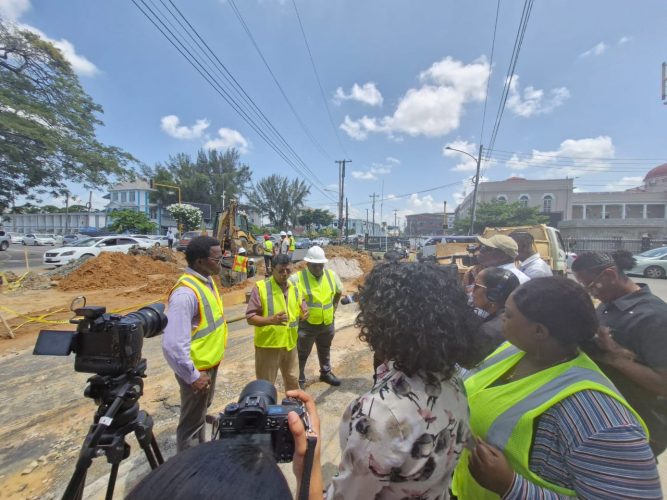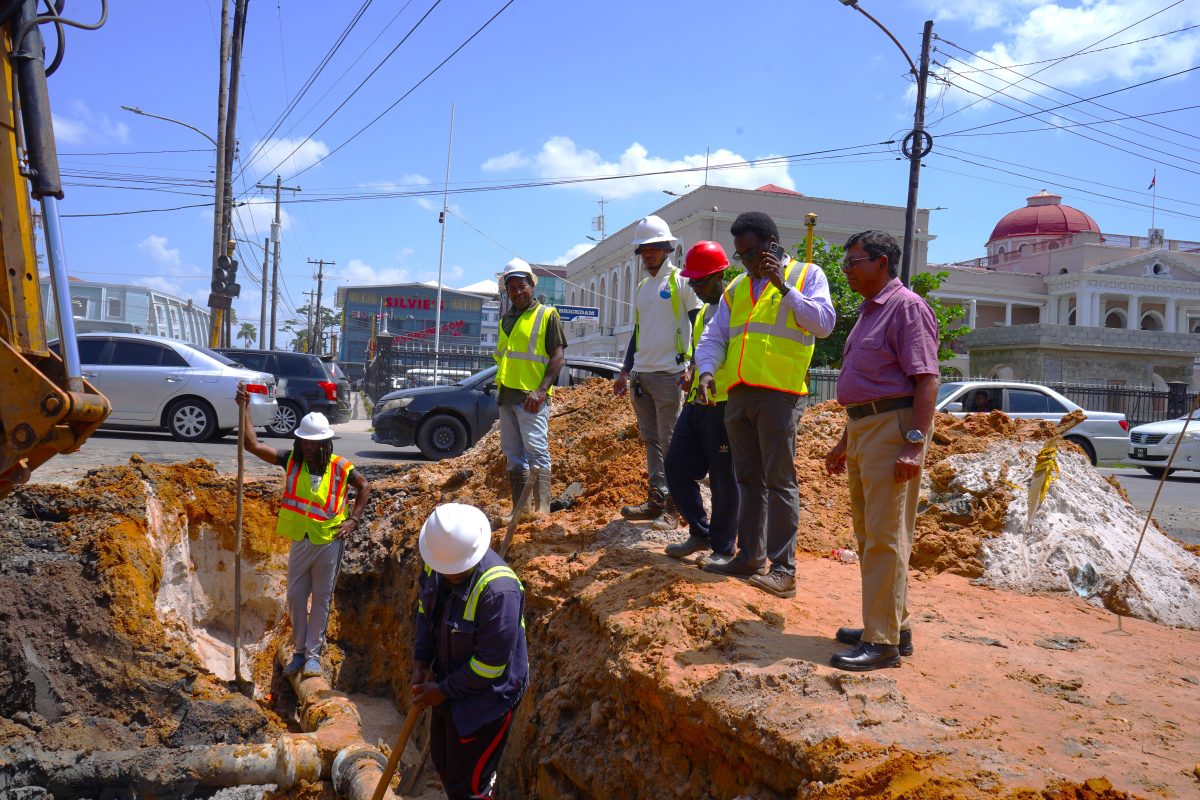At an estimated $1 billion price tag, the Guyana Water Inc (GWI) is continuing to replace old metal pipes installed since pre-colonial times with high density polyethylene (DHPE) ones as the former overtime have caused many service disruptions and water losses due to breakage and leaks, its Chief Executive Officer (CEO) Shaik Baksh said yesterday.
As such, the utility yesterday put residents of Georgetown on notice for interruptions, but emphasized it was all in the process to provide a better service to Guyanese.
“Overall in Georgetown we have the transmission lines and distribution lines and these lines, some of them are over 100 years old, and at this point in time a lot of these lines are breaking, they are leaking and collapsing,” the CEO said yesterday on the site of works at the corner of Brickdam and Avenue of the Republic.

“… The Government of Guyana is expending for this project alone, over $1 billion. We have already selected a contractor to replace these pipelines from Hadfield Street, going all the way to Bank of Guyana,” he added.
Baksh said that a project from Lamaha Street to near the Pegasus was 95% completed and there is another project soon to commence of the three lots project.
“I want to give notice to the residents of Georgetown that there will be disruption because these pipelines will be coming from Hadfield D… it’s a massive programme that will cause disruption but we are working to cause minimal disruption,” he said.
The GWI CEO informed that at the Brickdam and Avenue of the Republic location, the utility company had to make repairs five times, possibly due to the heavy traffic traversing the area and the pressure it puts on the pipes below the roads.
He bemoaned not only the loss of water but that it in turn contributed to the loss in service for many customers in the city as pressure was lost.
Project Manager Marlon Daniels said that with the use of modern pipes that can withstand pressure loads from weight above and release from the Shelter Belt. “We shouldn’t be having this problem down the line. We are restricted right now because we can’t really turn up the pressure or we would have a lot of this happening,” he explained.
He said GWI will “bite the bullet and get this project done”.
Each phase of work is expected to last three months and Daniels said that they have all the materials and funding needed and will “try our best to get it done before.”





